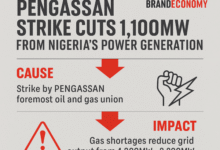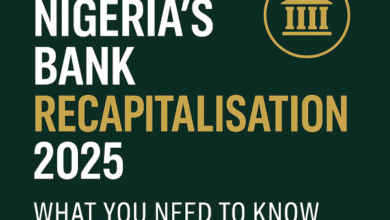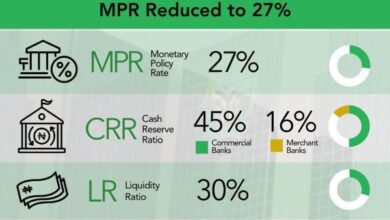Economic growth, the only means for Nigeria to defuse poverty time bomb –Bloomberg
 Bloomberg says only economic growth can defuse poverty time bomb in Nigeria.
Bloomberg says only economic growth can defuse poverty time bomb in Nigeria.
The international news agency based in New York, said this in an editorial on its website on Sunday.
Giving statistics, Bloomberg said one of humanity’s most hopeful developments in recent decades has been the dramatic drop in extreme poverty.
“In 2000, some 1.4 billion people lived at or below the global poverty line of $1.90 a day. Today, the number is about 600 million.
“This remarkable change is mainly due to growth in China and India: Much of sub-Saharan Africa, particularly Nigeria, has failed to share in the success.
“A decade ago, Nigeria had far fewer people in extreme poverty than either China or India; today, according to data compiled by the World Data Lab, it has more than both combined.
“The count stands at more than 90 million, and has risen both in absolute terms and as a share of the total.
“Nigeria’s young and fast-growing population is projected by the United Nations to double in size by 2050, making it the world’s third-biggest.
“Even assuming that the proportion of Nigerians living in extreme poverty stops rising as quickly as it has in recent years, it’s on course to remain extraordinarily high for the foreseeable future,” the editorial noted.
READ ALSO: For Africa To Develop, It Must Break Artificial Barriers, Trade More—Oramah
The editorial further noted that the president’s record over the last four years was discouraging and wondered whether he “is up to the task” of reviving the economy.
“His record over the last four years is discouraging. Economic growth has barely recovered following the 2014 crash in the price of oil, which remains Nigeria’s biggest export and source of government revenue.
“Per capita gross domestic product is less than it was when he took office. Joblessness has more than tripled. Efforts to spur agriculture and other non-oil parts of the economy have failed. Foreign direct investment has fallen by more than half since 2010,” it noted.
The editorial however, noted the president’s zeal in fighting corruption and restoring safety in the country, but advises he should be bold in running his second term.
“Despite everything, Buhari retains a reputation for personal integrity and the commitment to fight graft.
“But he needs to give equal weight to economic revival, without which there will be little progress in quelling conflict and radicalism.
“This in turn means moving away from the statist mindset that he’s displayed since the 1980s, when he became head of state following a military coup.
“Buhari’s priorities are understandable: Fighting Boko Haram, restoring safety and security, and curbing corruption are essential if Nigeria’s prospects are to improve.
“But reviving the economy is no less urgent. Consider that nearly 2 million Nigerians enter the workforce every year, while unemployment stands at more than 20 percent.”
Yetunde Adegoke











